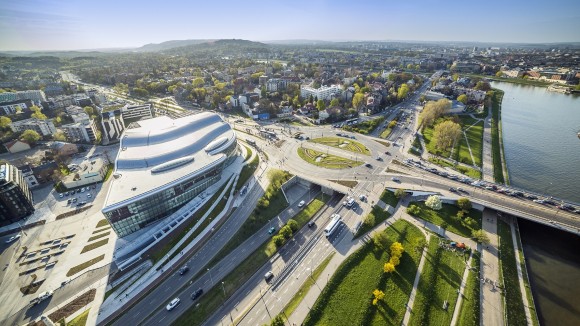About the Guest Editors
 Sandra Lavorel obtained a doctorate in ecology in 1991 and became a researcher at the CNRS since 1994 and she is now research director. She heads a research group on "Dynamics of socio-ecosystems in a changing world" at the Laboratoire d'Ecologie Alpine de Grenoble.
Sandra Lavorel obtained a doctorate in ecology in 1991 and became a researcher at the CNRS since 1994 and she is now research director. She heads a research group on "Dynamics of socio-ecosystems in a changing world" at the Laboratoire d'Ecologie Alpine de Grenoble.
Sandra's current research focuses on the impacts of combined climate change and land management on ecosystems and their services. This interdisciplinary research at the interface between functional ecology and social sciences, with close involvement of local and regional stakeholders, contributes to national and international biodiversity and ecosystem assessments. She chairs the French National Ecosystem Assessment and has actively contributed to the assessments of the International Platform for Biodiversity and Ecosystem Services (IPBES). In particular, she was the lead author of the Europe and Central Asia Assessment, where she coordinated work on paths to a sustainable future. She joined the IPBES Multidisciplinary Expert Group in 2018.
 Christopher Raymond is an interdisciplinary sustainability scientist with research interests in senses of place; assessment of the multiple values of nature, including the co-benefits of nature-based solutions; and participatory mapping theory and practice. He leads the Human-Nature Transformations Research Group at the University of Helsinki and multiple projects relating to the assessment of the co-benefits and costs of nature-based solutions, including issues of environmental justice and social inclusion. He is also actively engaged in research seeking to unlock trade-offs to societal transformation toward sustainability, drawing upon a socio-ecological-technological systems theoretical perspective. Professor Raymond is also a Coordinating Lead Author of the IPBES Values Assessment (Chapter 2, Concepts) and founding member of the Participatory Mapping Institute (PMAP).
Christopher Raymond is an interdisciplinary sustainability scientist with research interests in senses of place; assessment of the multiple values of nature, including the co-benefits of nature-based solutions; and participatory mapping theory and practice. He leads the Human-Nature Transformations Research Group at the University of Helsinki and multiple projects relating to the assessment of the co-benefits and costs of nature-based solutions, including issues of environmental justice and social inclusion. He is also actively engaged in research seeking to unlock trade-offs to societal transformation toward sustainability, drawing upon a socio-ecological-technological systems theoretical perspective. Professor Raymond is also a Coordinating Lead Author of the IPBES Values Assessment (Chapter 2, Concepts) and founding member of the Participatory Mapping Institute (PMAP).
 Timon McPhearson is an urban ecologist with expertise in urban ecosystem services, nature-based solutions and resilience to climate change in cities. He is also an Associate Research Fellow at Stockholm Resilience Centre and Senior Research Fellow at the Cary Institute of Ecosystem Studies. As an IPCC Lead Author he focuses on developing pathways for urban adaptation and resilient futures in cities. In 2019 he was awarded the Sustainability Science Award and the Innovation in Sustainability Science Award by the Ecological Society of America.
Timon McPhearson is an urban ecologist with expertise in urban ecosystem services, nature-based solutions and resilience to climate change in cities. He is also an Associate Research Fellow at Stockholm Resilience Centre and Senior Research Fellow at the Cary Institute of Ecosystem Studies. As an IPCC Lead Author he focuses on developing pathways for urban adaptation and resilient futures in cities. In 2019 he was awarded the Sustainability Science Award and the Innovation in Sustainability Science Award by the Ecological Society of America.
 Pippin M. L. Andersson is a plant ecologist who is interested in socially-informed ecologies and in recent years has focused her research on the ecology in and of cities. Her research is informed by her geography and primarily looks at the ecology of African cities and biodiversity in cities.
Pippin M. L. Andersson is a plant ecologist who is interested in socially-informed ecologies and in recent years has focused her research on the ecology in and of cities. Her research is informed by her geography and primarily looks at the ecology of African cities and biodiversity in cities.

